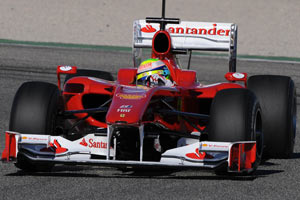autogyro wrote:This is a technical site, perhaps you would like to explain how a reliability repair has resulted in an increase in power and top speed when it should have resulted in a reduction?Afterburner wrote:Wake up, mercedes kept improving their engine throw seasons, ferrari did it now and renault will do it in the future, no doubt about that, please stop with the "ferrari are cheating" thing, it's just envy talk.
Forget all the rubbish about envy and be technical.
It's called evolution and scarbs mentioned how they've done it, don't need to do it. Hasn't mercedes done the same with their engine? Will not renault do the same? The big problem it's because ferrari doing it, face it! I can imagine what you would say if ferrari were the first team to bring the DDD or the F-duct.






